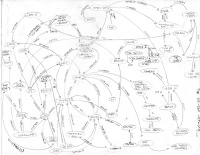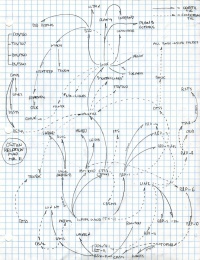OS-tan lineage: Difference between revisions
Jump to navigation
Jump to search
Fedora-Tan (talk | contribs) m (Reverted edits by CaptBrenden (talk) to last revision by Bella) Tag: Rollback |
(No difference)
|
Latest revision as of 15:26, 9 November 2023
| This article is a stub. You can help the OS-Tan Collections Wiki by expanding it. |
There are many computer and OS lineages, many of which are intertwined to some degree. So although these system families don't seem to be related, many of them share a common ancestor, either directly (code-derived) or indirectly through influences from a common system.
In most cases, the founder of a lineage is created from another one herself, but establishes herself and her descendants as a new separate lineage due to cultural and/or ideological differences.
List of lineages, to be better organized (somehow!) later:
- CP/M
- x86 DOS
- DOS/Win9x
- pre-Macintosh/Early Apple
- Commodore
- Sinclair
- Atari
- MIT
- Whirlwind
- DEC (note: is actually multiple, separate bloodlines)
- LINC
- PDP-8 branch
- PDP-10 branch
- PDP-11 branch
- RSX branch (derived from RW-300)
- WinNT (NT based off VMS)
- CDC
- Research Unix
- Sys V
- BSD
- NeXTSTEP/Mac OSX
- SYS V+BSD hybrid
- Linux
- Debian branch
- Ubuntu branch
- Red Hat branch
- Slackware branch
- Other branches
- Debian branch
- IBM
- System/360
- GMOS line
- IAS
- CDC
- Independent (no predecessor, made from scratch)


